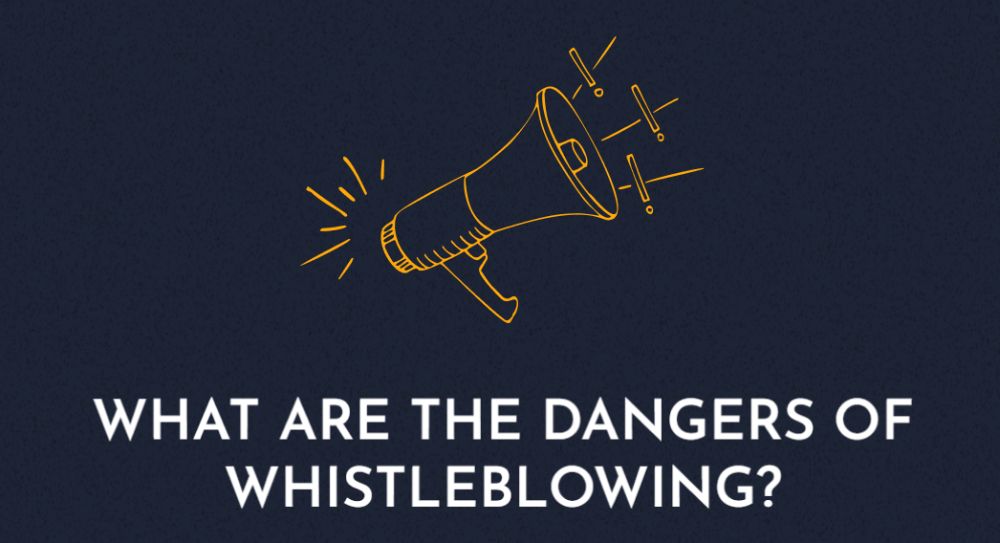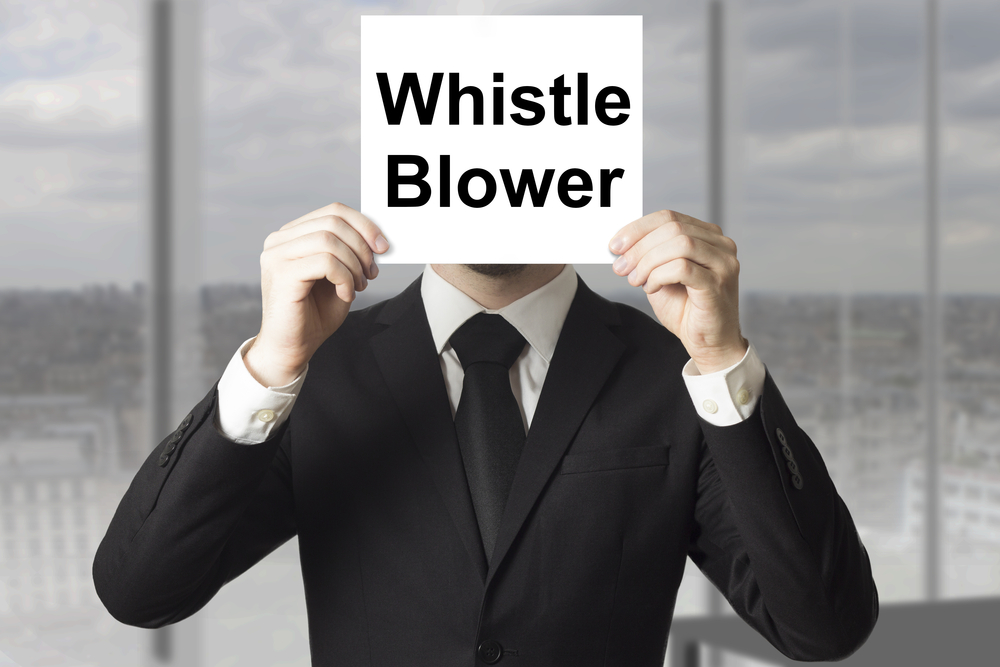
You know something isn’t right at work. Maybe it’s fraud, safety violations, or a practice that clearly breaks the law. Speaking up feels like the right thing to do – but it also feels dangerous. In Florida, whistleblowing can come at a steep price. Your job, career, and even your mental health might be on the line. You’re not imagining those risks. They’re real.
But you don’t have to face them alone. Legal support isn’t just for lawsuits. It’s for protection – before retaliation escalates, not just after. A Florida whistleblower protection lawyer will help you hold the right people accountable without letting your future slip away in the process. Get in touch with one as soon as you can for a free case evaluation.
Retaliation Starts Quietly, Then Gets Loud

After reporting misconduct, changes at work often come quickly. It might start with missed meetings, altered schedules, or being excluded from projects. Supervisors could suddenly become cold. Friendly coworkers may go silent. You start to feel like a problem, not because of what you’ve done wrong, but because of what you’ve revealed.
This type of shift isn’t always dramatic, but it doesn’t need to be. Florida law doesn’t require a pink slip to prove retaliation. What matters is the impact on your job, your ability to advance, and your working conditions. Understanding what are my rights in this situation can help you respond with clarity and confidence. A skilled employment attorney who handles whistleblower claims will recognize the difference between a coincidence and a pattern – and that’s how retaliation gets exposed.
Tactics Designed to Push You Out
Some employers won’t fire you outright. Instead, they’ll make the workplace so difficult that you want to leave. This strategy, often referred to as constructive discharge, relies on pressure. You might get assigned impossible deadlines or receive unjustified performance write-ups. Even lunchroom whispers and sudden micro-management can be part of the campaign.
When that pressure builds, you might question whether you’re being too sensitive. That uncertainty is part of the tactic. But a Florida whistleblower protection lawyer will read between the lines. Rather than focusing on isolated incidents, they’ll examine how workplace behavior shifted after your disclosure. A few unfair moments might seem like nothing – until someone shows how they were part of a larger push to get rid of you.
These are some of the most common tactics employers use to intimidate and force out whistleblowers.
Public Humiliation and Private Stress
Whistleblowers often endure humiliation on two fronts. Publicly, you may be labeled difficult, disloyal, or overly dramatic. Privately, you deal with insomnia, anxiety, and a sense of isolation that doesn’t go away when you clock out. Even if you’re proud of speaking up, the fallout can take a heavy toll.
That emotional strain isn’t just a personal struggle – it’s a legal factor. Your legal representative will help document and present the full emotional impact of retaliation. Your mental health matters. Emotional distress can become a central element of your case, not an afterthought. The more thoroughly your story is told, the harder it becomes for employers to dismiss what you’ve endured.
Attacking Your Reputation
In some workplaces, retaliation stays inside company walls. In others, it follows you far beyond them. Whistleblowers sometimes find themselves blacklisted – informally but effectively. Hiring managers stop calling. Recruiters lose interest. Former colleagues won’t vouch for you. Your prospects shrink not because of your skills but because of your honesty.
If this has happened to you, a workplace retaliation lawyer in Florida will track it. Proving informal blacklisting isn’t simple, but it’s possible. Timing, emails, rejection patterns, and witness testimony can all paint a picture of retaliation spreading into your wider career. Knowing how to deal with these obstacles early helps preserve your options. Legal action won’t undo the damage, but it can hold those responsible accountable and secure compensation for the path they cut off.
Digital Surveillance and Silent Punishment
Modern retaliation doesn’t always show up on paper. It often plays out digitally. You might get locked out of files, lose email access, or notice strange monitoring of your messages and browser activity. These moves are rarely justified – and they’re even more rarely documented. But they change the way you work, creating a daily sense of tension and mistrust.
You deserve protection from this kind of digital pressure. An experienced Florida whistleblower attorney will question why the surveillance started, how decisions were made, and what policies (if any) were followed. If your digital footprint becomes part of the employer’s strategy to discredit or isolate you, your legal counsel will make that part of your claim.
Weaponized HR Policies
Suddenly, you’re the one under investigation. Attendance records, conduct guidelines, and compliance checklists become weapons. Managers who once let small things slide now file official reports for every misstep. The goal isn’t correction – it’s documentation. Your employer wants to build a case, not to help you improve.
A seasoned lawyer won’t fall for this trick. They’ll compare how policies were enforced before your report versus after. If your employer only started caring about rules once you became inconvenient, that shift reveals more than the company wants to admit. Legal analysis of HR files and internal memos will bring those tactics into focus.
Micromanagement as a Form of Punishment
Micromanagement might be framed as guidance or accountability, but it often serves as a tool to discredit you. When every email gets second-guessed, every project rechecked, and every decision questioned, the goal isn’t better results – it’s pressure.
This pattern of behavior can’t be ignored. A Florida whistleblower attorney will present that uptick in scrutiny as a targeted response to protected conduct. Can I still sue even if I wasn’t fired? Yes. No one should be punished for doing the right thing, especially not through a constant erosion of their workplace credibility.
Manipulating Performance Reviews
In many whistleblower cases, job reviews become skewed. You might have a history of stellar evaluations, but once you’ve spoken up, those turn sharply negative. Comments get vague. Criticism becomes subjective. Suddenly, you’re no longer a top performer – you’re a “concern.”
This shift can be crucial in proving your case. A lawyer familiar with employer retaliation claims will compare your prior evaluations to recent ones. If no substantial change occurred in your duties or output, the difference in tone reveals retaliation far more clearly than any email ever could.
Turning Colleagues Against You
Sometimes, the company doesn’t need to isolate you. It just plants seeds. Comments like “she’s not really a team player anymore” or “he’s been acting differently lately” are meant to make coworkers second-guess their support. Once that wedge is in place, the social isolation does the rest.
If your allies suddenly turn cold, it may not be personal. It may be strategic. A whistleblower-focused attorney will consider witness testimony, Slack messages, and team chat archives that point to a coordinated effort to alienate you. That kind of interpersonal retaliation doesn’t just hurt – it builds your legal case.
Career Goals Derailed by Retaliation
Retaliation doesn’t always show up as a firing or demotion. Sometimes, it’s the project you don’t get, the promotion that quietly disappears, or the training opportunity passed to someone else. These missed chances add up – and so do the long-term effects on your career trajectory.
If you’ve been sidelined professionally, you have a right to push back. A Florida whistleblower protection lawyer will quantify what you’ve lost, not just financially but in terms of growth and advancement. Those missed milestones have value, and your legal team will pursue a strategy that reflects that.
Retaliation Doesn’t Always End With One Job
In some industries, word travels fast. You may discover that people outside your company know what happened. Future employers may hesitate to bring you on board. In the worst cases, your former company might actively speak against you during reference checks or background calls.
If your career is suffering because someone decided to whisper rather than deal with your claim honestly, that’s a legal issue. A Florida attorney who handles workplace retaliation cases will investigate whether defamatory remarks or coded messaging are sabotaging your future. Knowing how to protect yourself in these situations means documenting interactions, saving communications, and speaking with a lawyer early. Retaliation doesn’t stop when your paycheck does – and neither should your claim.
You Don’t Need to Face This Alone
The moment you report misconduct, the pressure begins. However, the right legal support will counter that pressure with an effective strategy, thorough documentation, and unwavering resolve. You didn’t break the law. You didn’t cause the problem. You told the truth – and now someone needs to stand beside you and help protect what comes next.
An advocate who understands how retaliation plays out across departments, systems, and industries will shift the balance in your favor. You shouldn’t have to explain your worth over and over while your employer rewrites the narrative. Your Florida whistleblower protection lawyer will push back until the real story is the one that’s heard.
Contractors and Freelancers Aren’t Immune

Even if you’re not technically an employee, retaliation can still find you. Contractors, temp workers, and freelancers face unique risks when exposing workplace misconduct. Employers may assume they can easily sever ties or avoid legal trouble by citing an independent contractor agreement. But classification doesn’t erase your rights.
Florida’s whistleblower law offers protection in more situations than most workers realize. A savvy whistleblower attorney will examine how your job functioned, not just how it was labeled. If the company treated you like an employee in all but name, that could change the legal conversation entirely.
Government Employees and Political Pressure
If you work for a public agency or government entity in Florida, your employer might be the state itself. In theory, you have stronger protections. But politics often complicate those protections.
Representation matters even more when public funding or political reputation is on the line. An experienced Florida whistleblower lawyer who has handled government-related whistleblower issues will know how to pursue your claim without letting it get buried in red tape. Public employers have responsibilities just like private ones, and a well-prepared claim forces them to answer for their conduct.
Legal Complexity Doesn’t Mean You’re Powerless
Florida law protects whistleblowers, but that protection can be complicated. Your rights depend on where you work, what you reported, and how you reported it. That complexity is no accident. Employers benefit when workers feel confused or discouraged. If you’re unsure where to begin, you’re not alone – and you’re not helpless.
Rather than trying to decode the law yourself, talk with someone who’s built these cases before. Your whistleblower protection attorney will identify which laws apply to your specific situation and lay out the steps needed to move forward. Can you sue for the retaliation you’ve faced? In many cases, yes—and your attorney will help determine whether litigation or another route gives you the strongest chance of success. They’ll gather evidence, frame the claim, and deal directly with company counsel, so you don’t have to guess what’s next.
Internal Reports vs. External Reports
You may have gone through internal channels before going public. You might have emailed HR, filed a complaint with your manager, or brought concerns to a compliance officer. That’s a common and reasonable first step. But once your complaint becomes inconvenient, companies often pretend those systems don’t matter. They’ll claim you didn’t follow the right process or that you never submitted anything at all.
That’s where documentation matters. If you raised your concerns in writing – or even told a supervisor directly – those actions carry legal weight. A knowledgeable lawyer will help organize that timeline and use it to demonstrate your good faith. You weren’t reckless. You were careful. That distinction matters in court.
When Employers Try to Flip the Script
Some employers fight back by launching counterclaims. You might face a sudden defamation threat, be accused of breaching confidentiality, or be hit with a demand letter referencing company secrets. These tactics aren’t really about protecting the company but silencing you.
Rather than letting these moves intimidate you, bring them to someone who can turn the tables. A Florida whistleblower lawyer will respond forcefully, showing that your actions were legally protected and in the public interest. When are you entitled to protection? As soon as you report suspected misconduct in good faith, the law may shield you from retaliation. If the company weaponizes legal threats to punish your honesty, that becomes one more form of retaliation – and it belongs in your case.
Speak With a Florida Whistleblower Attorney to Learn More
You may never get a thank you from your employer. Your coworkers might never fully understand what you did or why. But that doesn’t mean you were wrong. You chose truth over comfort. You chose integrity over silence. That choice deserves more than hardship – it deserves a fair chance at justice.
That’s exactly what a Florida whistleblower protection lawyer will help you pursue. Please contact an attorney immediately for a free case review so a legal professional can develop the best strategy.

